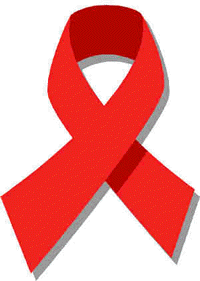
AIDS in the Circle City
Racial Solutions
One of the best ways to draw attention to the raging epidemic in the black community is to educate the public. Organizations like MTV and BET have already begun campaigns to educate the public about the epidemic. MTV’s website, www.thinkHIV.org, provides links to individual states, allowing a person to view his state alone and alongside others. It also provides the names and locations of testing centers near a person’s zip code. Perhaps the most effective portion of the website is the section called “Think-HIV This Is Me.” This portion of the website is dedicated to v-logs (video logs) in which people infected with HIV/AIDS tell their stories. The young men and women use the camera as a sort of confessional to bare their secrets.
Another popular channel, Black Entertainment Network (BET) also has its own version of thinkHIV.org. Called www.rapitup.com, the website is a place where anyone can go and see different symptoms, treatments and options for various ailments, not the least of which is HIV/AIDS. BET is also specially geared toward a black audience, the same black audience that is being infected with HIV/AIDS at an alarmingly high rate compare to its white counterpart. It is very important that networks like BET use their influence to reach out to the black community, especially young men and women. In an article written in the Morbidity and Mortality Weekly Report from August 20, 2004, one of the cited most common reasons for “MSM specifically, and young black men in general, to engage in high-risk sexual behavior. The most common reasons were: 1) lack of sustained prevention messages targeting young blacks.”[1] If BET, a commonly watched channel among black youths, uses its influence to speak out against HIV/AIDs, then there will most likely be a marked difference in the AIDS rates among black people.
An effective way to combat the problem with men on the "down-low" would be to distribute information at all testing centers, hospitals, and doctor’s offices. In these places, where HIV/AIDS is not always connected with a gay lifestyle, men can receive information without being insulted. However, the most effective way to reach these men, in my opinion, is to use the internet. Because of the anonymity of the internet, black men who have sex with men can look at websites and do research without the fear of public humiliation. In fact, according to the article from the MMWR, the internet “should be considered as…prevention sites for this [young, black MSM] population.”[1] Through the use of the internet, the information is readily and anonymously available to whomever would like to use it. This is the best shot at educating men who do not admit to or want to talk about having sex with another man.
There are places in Indianapolis that try to reach out to the black community. Bridging the Gap is one of them. A program run through a grant and a local foundation, they serve the African-American community with support groups, counseling, volunteers, peer counseling, food/clothing assistance, housing referral, job placement, and a host of other services.[1] This kind of place is exactly what the African-American community needs, especially for support groups and counseling services. One man in a study done discussed the need to talk about same sex experiences: “One reason I came to this group was to talk about some things that I don’t talk about.”[2] Bridging the Gap is only going to be funded through a grant for four years, and the rest of their operations are paid for through donations. If the program cannot stay alive through donations alone, the state should step in an fund the program, as it is already established in the community and does much good.
Along with Bridging the Gap, the Damien Center is the foremost HIV/AIDS
clinic in the greater Indianapolis area. Located in a poor part of
town, the Damien Center, established in 1987 in a building donated by
the Roman Catholic diocese of Indianapolis (however, no longer located
there), is a place where people can get tested, receive counseling,
attend support meetings, as well as provide coordination for medication,
jobs, housing, and finances.[3]
The Center also hosts benefits and galas to raise money and awareness.
[1] http://www.ebenezerprojects.com/hivaids.html
[2] HIV Prevention needs for specific MSM
[3] Indianapolis Star
[1] MMWR Vol. 53/No. 32, p. 733
[1] MMWR Vol. 53/No. 32, p.733
![]()